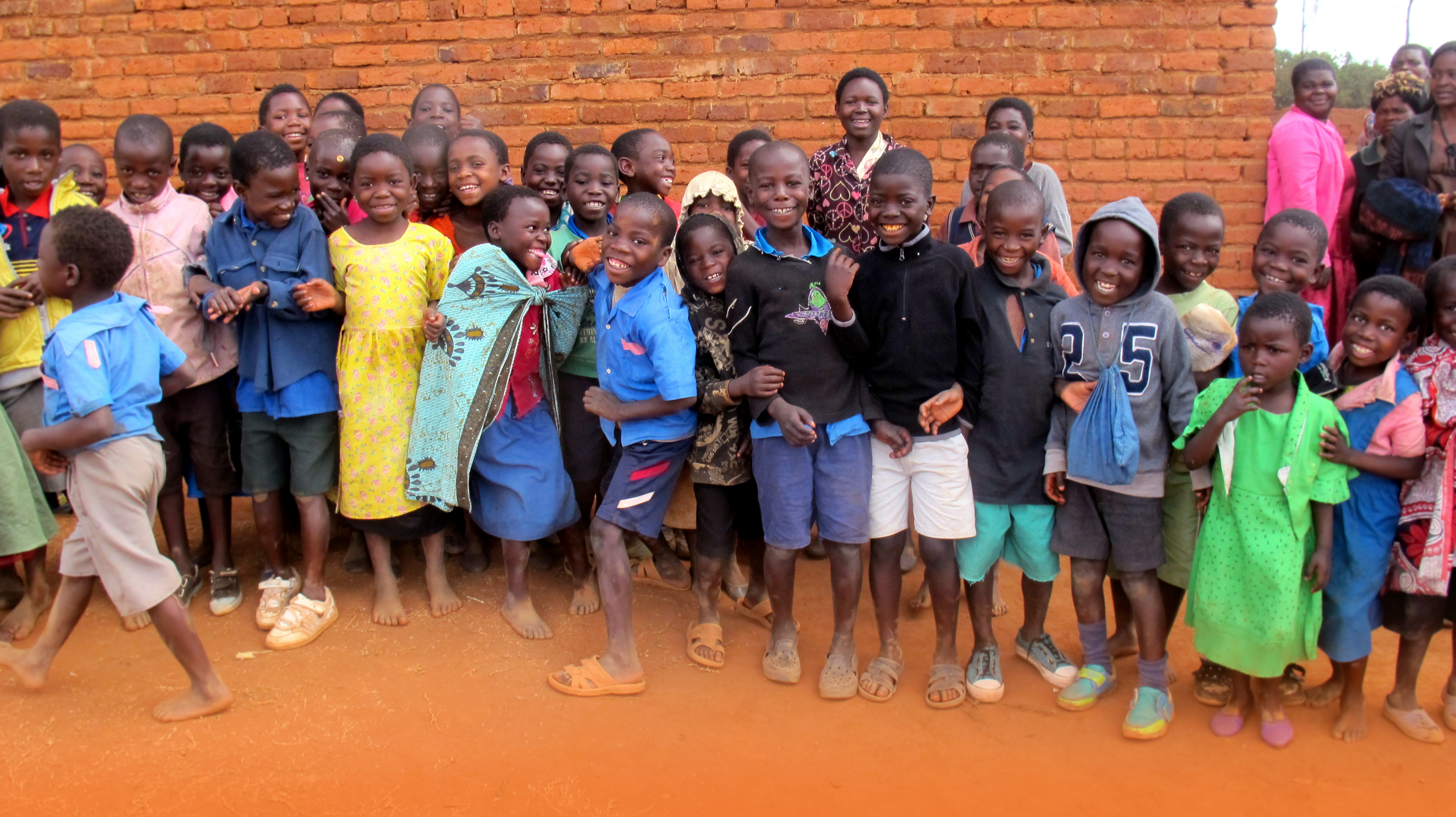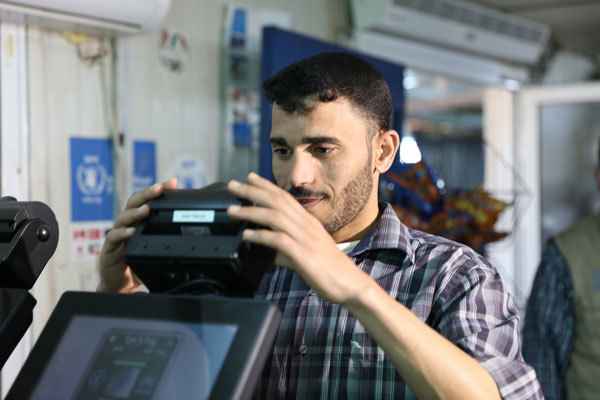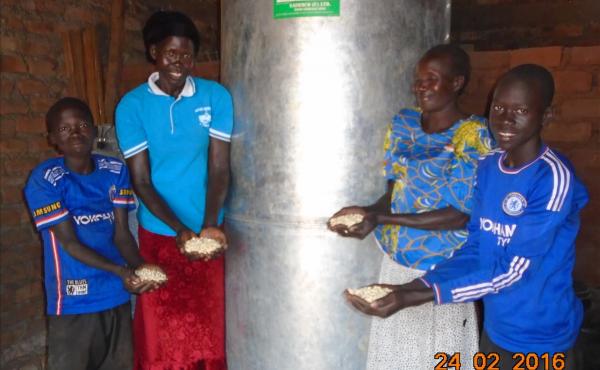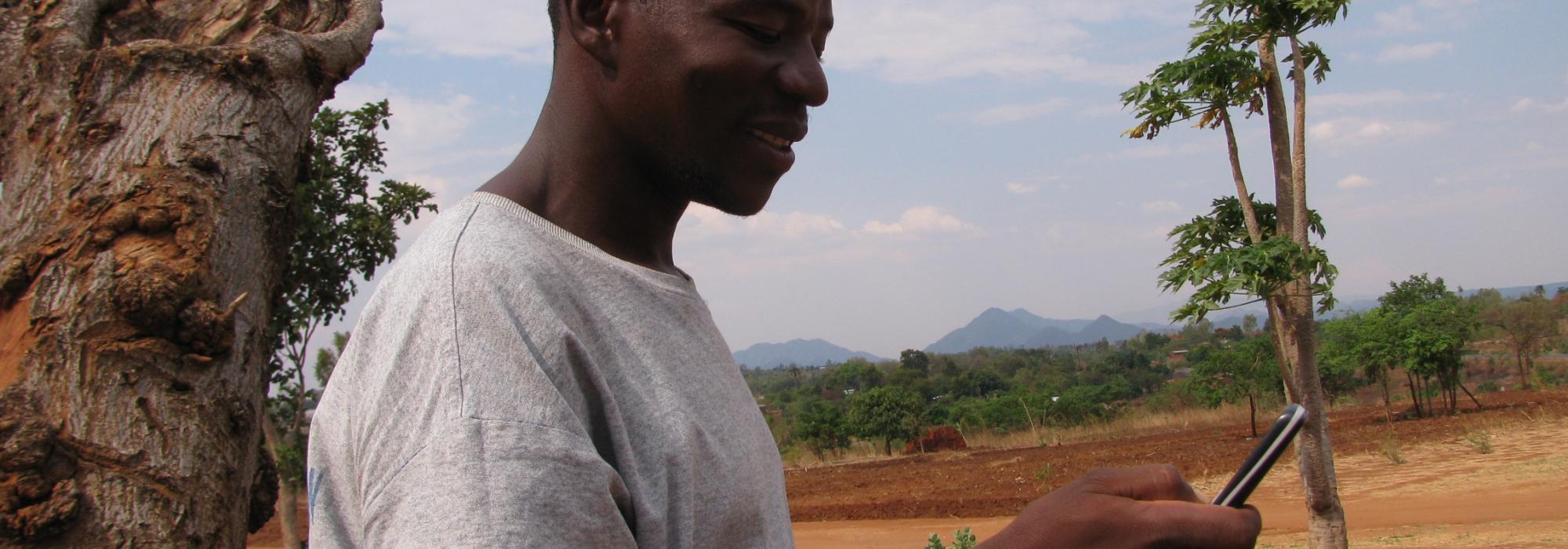EDITOR’S NOTE: THIS PIECE IS AUTHORED BY ROB OPP, DIRECTOR OF WORLD FOOD PROGRAM (WFP). THIS PIECE IS PART OF A SERIES EXPLORING THE SUSTAINABLE DEVELOPMENT GOALS. SEE THE INTRODUCTION TO THE SERIES HERE. THIS PIECE IS AUTHORED BY ROB OPP.
Fifteen years ago, 1 in 7 people had a mobile phone, laptops were relatively rare and most desktop PCs still used Floppy disks which could store 200MB. VHS video tapes were the medium of choice for home entertainment and Kodak’s 75,000 employees printed over 21 billion photos per year.
![]()
Since then, new technologies, innovative approaches and business models have rapidly and radically transformed our world in ways never seen before.
Today, mobile phones almost outnumber people in the world and 80 billion SMS and instant messages are sent every day. The shift towards digital photography forced Kodak to declare bankruptcy in its traditional film business, and on demand video streaming services are threatening not only DVDs but conventional TV stations.
Yet despite these dramatic changes, some of the most pressing global problems are still with us.
Poverty, hunger and inequality affect hundreds of millions: 836 million people worldwide still survive on less than $1.25 a day; in many lower- and middle-income countries, as much as 80% of illnesses are related to poor water and sanitation conditions and every day, 830 women die due to complications during pregnancy and childbirth. Children from the poorest households are four times more likely to be out of school than those of the richest households, whilst large disparities between rural and urban areas remain unresolved.
While trying to tackle “traditional” development priorities, new and complex challenges are arising in many countries: Millions are moving to mushrooming mega-cities which are struggling to meet the rapidly increasing demand for affordable housing, public services and economic opportunities; urbanisation and industrialisation are putting further pressure on countries’ infrastructure and resources. At the same time, protracted conflicts and climate change are threatening the livelihoods of communities, cities and entire countries, and displacing millions of people from their home.
While efforts to date have been significant, we must accept that if we continue doing things as we have done in the past, we will not achieve the Sustainable Development Goals.
Today, 795 million people go to bed hungry at night; if we continue with business as usual, it will still be 550 million people in 2030.
It is time that we unlock the power of innovation for sustainable development and use it to accelerate our efforts to eradicate poverty and hunger in the world. In fact, harnessing the power of innovation is not just something we could do – it is something we must do.
At the World Food Programme (WFP) innovation is a cornerstone of our efforts to provide food assistance to over 82 million people worldwide.
Related article: “AN ACCELERATOR WITH A DEVELOPMENT IMPACT”
In the past, WFP has delivered food by plane, train or truck (and – where necessary – canoes, donkeys and elephants), but the introduction and adoption of mobile phones, even in some of the world’s most remote areas, has opened up new ways to provide food assistance to people in need: today, we distribute e-cards so that the people we serve can buy what they need, when and where they need it, and pay for it as if using a debit card; we use scratch-cards to rapidly provide funds in the aftermath of a disaster; and for the first time in the history of the retail industry, Syrian refugees in Jordan can use a scan of their eye as a method of payment. Today USD 1 billion, or 26%, of WFP’s operational portfolio is delivered via cash-based transfers.
IN PHOTO: HAMADA, A SYRIAN REFUGEE FROM DARAA, LOOKS INTO THE IRIS SCAN CAMERA. PHOTO CREDIT: WFP/MOHAMMAD BATAH
Technology is an important enabler and catalyst for innovation, but just as in the private sector, some of the most impactful innovations in the humanitarian and development community have been based on the introduction of new business models.
The African Risk Capacity (ARC), incubated by WFP and now a specialised agency of the African Union, is an innovative insurance scheme for countries against extreme weather events. ARC allows countries to manage their risks as a group in a financially efficient manner and enables them to respond to probable but uncertain risks. This lowers the cost of disasters before they become crises and has been a game changer for humanitarian assistance.
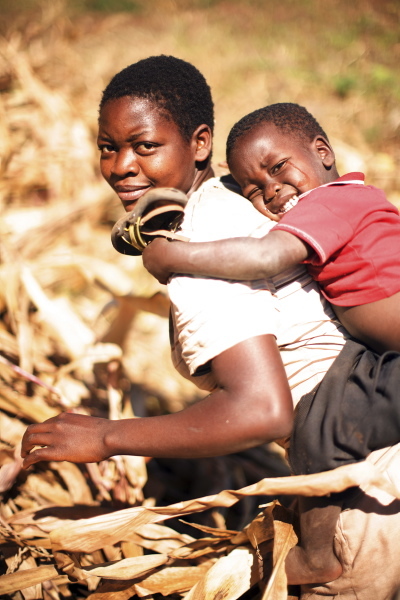
IN PHOTO: A FEMALE SMALLHOLDER FARMER WORKING THROUGH THE MALAWIAN SUN, SEPARATING MAIZE FROM THEIR STALKS. PHOTO CREDIT: WFP/CHARLES HATCH-BARNWELL
In 2015, ARC paid out $25 million in premiums to countries affected by a severe drought. By drawing on international financial markets, the ARC is sustainably reducing the demand for humanitarian assistance and funding while at the same time empowering countries to lead their own response efforts.
Cash-based transfers and ARC are just two examples of innovations that have transformed the way WFP serves the most vulnerable people worldwide. And we are pushing even further: exploring whether we can use Unmanned Aerial Vehicles to rapidly restore mobile-phone connectivity after a disaster; and crunching big data to identify trends in food purchases and prices to ensure that we have the right assistance available where and when it is needed.
In an effort to nurture this kind innovative thinking WFP has also created an in-house ‘Innovation Accelerator’ based on best practices from the world of start-ups, the corporate sector and leading social entrepreneurs.
The Accelerator supports innovations from inspiration to implementation: it runs internal and external challenges to involve the entire organisation in surfacing and brainstorming innovative ideas for Zero Hunger; bootcamps to rapidly understand problems and develop solutions; and sprint programmes to support rapid testing and prototyping. It also provides thought leadership on big, bold and cross-cutting ideas.
IN PHOTO: WFP INNOVATION ACCELERATOR PROJECT IN UGANDA THAT HAS SOLD MORE THAN 65,000 SMALL SILOS TO SMALL-HOLDER FARMERS. PHOTO CREDIT: WFP/INNOVATION ACCELERATOR
The Innovation Accelerator offers a dedicated space and risk-free environment, access to state-of-the-art innovation methodologies and external networks to test, develop and take innovations to scale. The rapid development of a “Green Box”, which enables staff in WFP’s field offices to measure energy consumption without any prior training, and a project in Uganda, which virtually eliminates food losses related to poor storage of harvests, are just two examples of projects supported by the Accelerator.
For a full mindmap containing additional related articles and photos, visit #SDGStories
And there is more we can do.
While WFP and the broader international community have undertaken significant efforts to leverage innovation for sustainable development, we must not forget that there are many more new and innovative approaches with the potential to transform our work that we are not yet fully exploiting.
For example, with costs of mobile phones rapidly falling and low-cost versions being developed, estimates indicate that by 2020 6 billion, or 86% of the world’s population (including those in the most remote areas) will own a smartphone. At the same time, the high-altitude balloons in Google’s Loon Project or Unarmed Aerial Vehicles in Facebook’s Internet.org initiative aim to bring internet access to rural and remote areas and connect 5 billion more people to the internet.
Reducing or eliminating the digital divide will drastically change the lives of the most vulnerable people: millions of children in remote areas can access educational content online and doctors can extend their services to rural communities via specialised apps. People can research where best to buy and sell products, look for job opportunities, and participate in mobile banking.
Connecting the “bottom billion” to the internet will radically change the work of humanitarian and development actors: it can open up new channels for organisations to communicate directly with the people they serve and understand their needs and satisfaction with the services they receive. It will create opportunities for technology-based innovations, such as mobile applications connecting smallholder farmers to markets and reminding mothers of upcoming pre and ante-natal appointments.
And mobile phones are just the beginning: The Blockchain, the internet of things and big data analytics will spark countless new possibilities to transform the work of humanitarian and development actors; energy may become free and abundant as we learn to store and integrate renewable energies into the grid; and new farming techniques and genetically modified crops may make food price fluctuations and shortages a thing of the past.
IN PHOTO: THE MOBILE VULNERABILITY ANALYSIS AND MAPPING PLATFORM (MVAM) IS A WFP INNOVATION ACCELERATOR PROJECT THAT ALLOWS THE COLLECTION OF REAL-TIME DATA ON LOCAL MARKET PRICES, ACCESS AND AVAILABILITY TO FOOD, CONSUMPTION PATTERNS, AND ON THE COPING STRATEGIES OF FOOD INSECURE POPULATIONS BY LEVERAGING MOBILE TECHNOLOGY. PHOTO CREDIT: WFP/INNOVATION ACCELERATOR
Unlocking this bright future will require us all to take action. Three important changes in our approach will help:
1. Innovate with and for affected populations
No one understands the challenges of people in need better than people in need themselves. People displaced from their homes or affected by extreme weather events have often spent many years trying to survive in dire conditions and developed innovative approaches to coping with them.
To accelerate progress towards eliminating poverty, the international community needs to work closely together with affected populations and learn from their experiences.
A user-centric approach to innovation will ensure that we are addressing the most pressing problems first and building on proven approaches rather than imposing alien and potentially more complicated solutions on people.
In addition to encouraging grassroot innovation, we also need to explore bold ‘big picture’ ideas, which may be too complex for any one individual to drive but have the potential for truly transformational change. These include leveraging new and unconventional data sources, including big data, to understand and predict population movements and purchasing patterns; innovative insurance mechanisms to revolutionise the way humanitarian assistance is financed and efforts to use renewable energies to power humanitarian response.
2. Foster innovation partnerships
Academia and the private sector are the engine for innovation and have sparked the development of some of the world’s most game-changing inventions. To maximise the impact of these innovations and ensure they benefit the poorest and most marginalised people, the international community should seek to establish diverse innovation partnerships with academia, the private sector, NGOs, civil society and foundations.
Well-designed partnerships with joint goals and objectives will yield benefits for all involved: private sector and academic partners can better understand the needs of the “bottom billion”, gain insights into consumption patterns and access to new markets.
The international community can benefit from access to new tools and the technical, scientific and operational expertise of partner organisations, which can guide and inspire their innovative efforts.
Partnerships can also inform the R&D agenda of private sector companies and lead to the development of new products, which address specific needs of the most vulnerable people (e.g. powders to add micronutrient directly to home-cooked meals) or which can advance emergency responses (e.g. Unmanned Aerial Vehicles).
While financial contributions are important to fund innovations, access to the knowledge and tools of private sector partners may be just as important as they contribute to strengthening capabilities and systems for innovation in the long-run.
In addition to establishing external partnerships, humanitarian and development actors also need to work closely with each other and share insights, experiences and lessons learnt to ensure that every innovative approach has the maximum impact.
3. Encourage everyone to join the fight
Innovation makes it possible for everyone, everywhere to contribute as much or little as they wish to achieve the Sustainable Development Goals and there are many diverse opportunities to do so.
Those who want to do even more can use their innovative and entrepreneurial spirit to develop new approaches and business models to promote sustainable development.
It is up to us to use the power of innovation not only to design new mobile phone applications for shopping and gaming, but to make sure that every person in the world can live a healthy and productive life.
People, who are unable to dedicate time or skills, can donate to support the work of the international community. Innovative ways to contribute directly are making donating easier than ever: WFP’s ShareTheMeal smartphone application, for example, allows users to share their meal with a child in need for just $0.50 a day. Worldwide there are 20 times as many smartphone users as there are hungry children and ShareTheMeal is an easy, effective and social way for everyone everywhere to help end hunger in our lifetime. Simply by tapping twice on their smartphone.
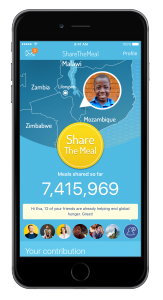
IN PHOTO: SCREENSHOT OF THE SHARETHEMEAL APP, WINNER OF THE SXSW INTERACTIVE INNOVATION AWARD. PHOTO CREDIT: WFP/SHARETHEMEAL
We truly live in exceptional times, in which innovation can help put an end to some of the most intractable problems that have faced humanity across our entire history.
Working together with those affected, bringing new technologies and approaches to bear through effective innovation partnerships and crowdsourcing skills and contributions from everyone everywhere are all critical changes in our thinking and approach. Let us all work together to build this new future free of scourges like hunger and poverty.
Recommended reading: “ INNOVATION AND STRATEGY IN THE PHILANTHROPIC WORLD“


